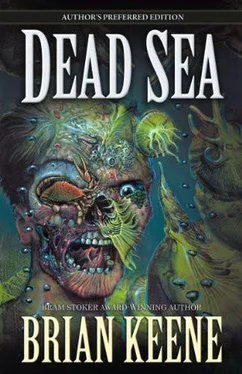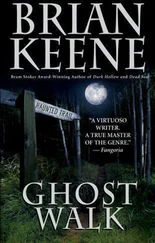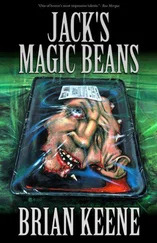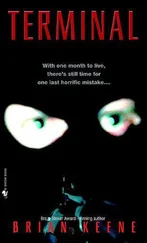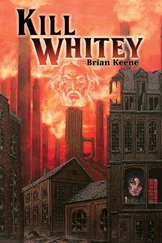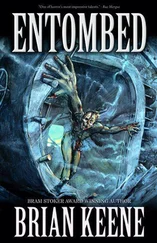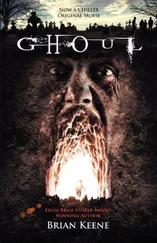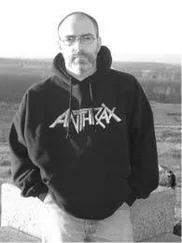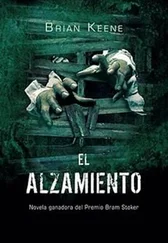Mitch nodded silently, encouraging me to continue. I was surprised by the sudden swelling of rage inside me.
“I had a good job in White Marsh, working on the assembly line at the Ford plant. Paid my bills on time, wasn’t in too much debt. Didn’t have much to show for it all, but I figured good things would come, right? And then I got laid off. They closed the plant down. Opened a new one in China, and shipped our jobs over there. I got on unemployment, but that didn’t amount to shit. Couldn’t find a job anywhere. Either I wasn’t qualified enough or I was too qualified. Shit, I couldn’t even get a job in fast food. Every month the stack of past-due bills got higher and I got deeper into shit. Then the phone calls started. Bill collectors. Fucking locusts is what they are. They’d call all hours of the day, even on the weekends. Even on Sunday. I was about to lose everything. And all I could think was ‘Why me?’ I’d done everything right. You used to see these politicians on TV, saying that black folks needed to work harder—needed to better ourselves and our communities. Well, that’s exactly what the hell I was trying to do. And you know what I got for it? I got fucked.”
“And that’s why you feel like a fraud? Shit, Lamar, it wasn’t your fault.”
“No, maybe it wasn’t my fault. But it sure as hell was a few days later when I took what little money I still had and bought a pistol. And it was definitely my fault when I decided to get even with Ford by robbing one of their dealerships.”
“Oh, shit…”
“Exactly. I woke up one morning and the bill collectors were calling before I’d even got out of bed. I walked into the Ford dealership with the gun stuffed in my waistband and my shirt pulled down over it. A salesman came over to help me and I told him I wanted to take one of the cars for a test drive. We went out. He was sitting beside me, talking about all the different features and shit. When he told me to turn around, instead, I pulled into an old industrial complex.”
“And then what?”
“I robbed him at gunpoint. I was so nervous I thought I’d puke. I think the salesman actually took it better than me. I remember at one point, he was having trouble getting his wallet out of his pants and he apologized. And all I kept thinking was that it should be me who was apologizing, not him. I took all his money, and then I drove us to an ATM and made him empty out his account. When we were finished, I bailed. I was sick for the next three days. Oh, I was out of debt—temporarily, at least. I paid my past-due mortgage and made sure the bank wouldn’t foreclose. But the guilt was crushing me, man. I couldn’t eat. Couldn’t sleep. Figured the cops would kick down my front door at any second. But they never did. And in some ways, that was worse, because that meant I still had to live with the guilt in silence. I’d become everything I hated. And then I was broke again. I was still dealing with all that when Hamelin’s Revenge came along. I’ve been focused on staying alive ever since. But I can’t forget about what happened. It’s right there, in the past. I can’t change it and I can’t forget about it. The kids and you and the professor—you all think I’m somebody that I’m not. I ain’t no hero. I’m a fucking loser.”
He shook his head. “You’re a damn fool is what you are.”
“Excuse me?”
Mitch grinned. “Don’t you see, Lamar? None of that matters now. The past is just that—the past. It’s as dead as those things in the streets. We’ve left it behind. Everyone makes mistakes. That’s what molds us. But it doesn’t matter who we were or what we did before all of this happened. We’re still alive! When the rest of the world is fucking dying, we’re still here. The only thing that matters now is how we respond and who we become. You know, that preacher back at the rescue station may have been insane, but he was right about one thing.”
“What’s that?”
“We really are born again. I’m not talking about in any religious sense. We’ve got a second chance to reinvent ourselves, to become someone different. The professor is right. We’re on a quest—all of us. So stop worrying about the past and start thinking about the future. The past is dead.”
“So are the zombies,” I said. “But that doesn’t stop them from coming back and biting us in the ass. What kind of future can we possibly look forward to? Living on the run? Hiding out every time we go to the mainland? That’s not living. That’s existing.”
“It’s enough for me. And the same goes for you. Otherwise, you’d walk out on the flight deck right now and jump into the ocean. You’re a fighter, same as me—you do it because you don’t know what else to do. And now you’re fighting for those kids, whether you’ll admit to it or not. So suck it up and be a hero. Hell, who knows? We live through this and civilization makes a comeback, then maybe they’ll have mythology about us in five thousand years. We’ll be history.”
I shrugged. “Maybe we already are.”
“That’s not what I meant,” Mitch said, smiling, “and you know it.”
His smile grew broader. After a moment, I returned it. We crept back into the compartment and, with the lights out, crawled into our racks. Tasha and Malik didn’t stir. The ship gently rolled from side to side, creaking and groaning. Steam pipes along the wall ticked. My stomach grumbled.
“Good night,” Mitch whispered.
“Night.”
I lay back in my rack and stared at nothing. I thought about the past. Maybe Mitch was right. Maybe it didn’t exist anymore. Maybe that version of Lamar Reed was as dead as the city he’d left behind when he sailed out to sea. The future waited right over the horizon, and when the sun came up tomorrow morning, it would rise on the first day of the rest of our lives. I wondered how long those lives would be.
The chief had been right about the weather. The next morning we woke to cold rain. A storm had blown in overnight. Massive gray and black clouds swallowed the horizon, obscuring the lines between sea and sky. Thunder boomed across the water. Dime-sized drops of rain pelted the decks. The waves grew larger and the ship tilted like a carnival amusement ride. Most of us hadn’t developed our sea legs yet and every time the Spratling took a particularly hard roll, we ran into the bulkheads. At breakfast, which consisted of fish we’d caught the day before, we had to hold on to our trays tightly, or else they’d slide down the table and crash into each other. Even those of us who hadn’t struggled with seasickness before now looked queasy.
The weather suited the crew’s mood. But by noon, the clouds had cleared and the rain stopped. The ocean grew calm, flat like glass, the waves barely cresting. The sun shined down and the ternperature climbed again. Seagulls circled the ship, hoping for a handout. Old habits died hard, I guess. There were a million meals walking around on shore for them.
According to the chief, we were still on course for the oil drilling platform. Mitch, Basil, Professor Williams, and I had spent the morning performing other duties below deck. I also spent some time with Tasha and Malik. My late-night conversations with Mitch and the professor kept running through my mind, and I decided to try to live up to whatever the kids wanted me to be. Once the storm had passed, we met up on the flight deck, got out our deep-sea rods and tackle gear, and began the day’s fishing. Tran and Nick had saved the guts and heads from yesterday’s catch in a bucket so that we could use them for bait. We lined up along the railing with the bait bucket between us and cast our lines. The professor had found a floppy-brimmed hat somewhere onboard and he wore it to keep the sun off his head. He looked like a geriatric Gilligan. Basil was quiet and sullen. He didn’t say anything about his mutinous thoughts regarding our destination, and the three of us didn’t let on that we knew. Instead, Mitch and the professor traded jokes back and forth, and I laughed. Basil pretty much ignored us, standing off by himself farther down the deck.
Читать дальше
